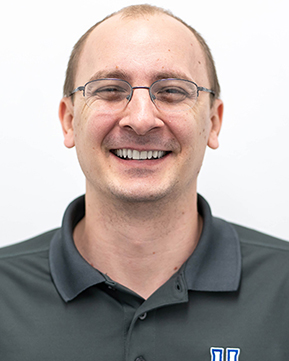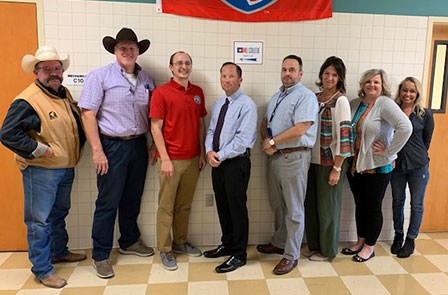

Hill College's Drug and Alcohol Abuse Counseling (DAAC) Program is in the process of closing and will no longer accept new applications after Fall 2025. DAAC is currently undergoing a planned phase-out process; however, currently enrolled students will still have the opportunity to complete their coursework, as classes will continue to be offered through the 2025-2026 and 2026-2027 academic years. We remain committed to supporting our students as they finish their training and prepare for careers in this vital field.
If you have questions, we will be hosting an informational session.
- October 7, 2025
JCC Student Center Room 400 from 11 a.m - 2 p.m.
Microsoft Teams from 12 - 1 p.m.
You can contact Kyle May (kmay@hillcollege.edu or 817.760.5980) or the Advising & Success Center (advising@hillcollege.edu or 817.760.5650).
A career in drug and alcohol abuse counseling is a rewarding avenue for those interested in helping individuals with addiction and substance abuse issues. It is one of the fastest-growing fields in the country, according to the U.S. Department of Labor.
The Drug & Alcohol Abuse Counseling Program provides students with the education and practical experience to become licensed chemical dependency counselors who will graduate with the skills needed to provide the necessary services to individuals and families in need. This career path will allow you to make a life-changing difference for individuals in the community you serve.
Contact

Kyle May
Program Coordinator
kmay@hillcollege.edu
817.760.5980

From Left to Right:
John Roof (committee chair), Matt Wylie (committee member), Kyle May (Hill College), Kason Mobley (committee vice-chair), Neal Sandlin (committee member), Pamala Preston (committee member), Tina Lincoln (committee member), and Lindsey Fiore (committee member). Not Pictured: Pam Crumpton (committee member)

Degrees Offered
Program Outcomes
Graduates of this program will be able to:
- Effectively articulate factual information orally and in writing as applied to criminal justice practice. Students will apply a professional code of ethics in exercising discretion and problem solving.
- Explain the behavioral, psychological, health, and social effects of substance abuse.
- Describe the importance of family, social networks, and community systems in the treatment and recovery process.
- Explain the contemporary models and theories of counseling clients with substance abuse problems.
- Describe the privacy considerations of treating individuals with substance abuse disorders.
EDUCATION PLAN(S)
DEGREE/CERTIFICATE OPTION(S)
Associate of Applied Science Drug and Alcohol Abuse Counseling Education Plan
